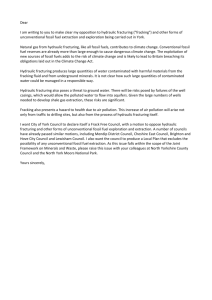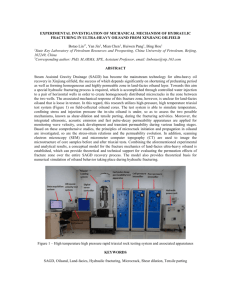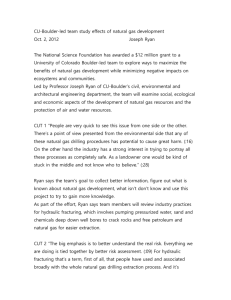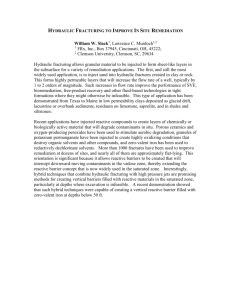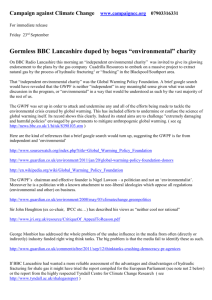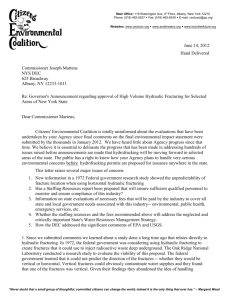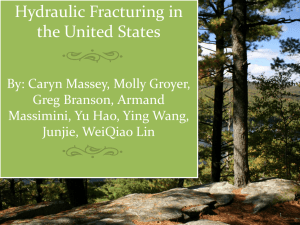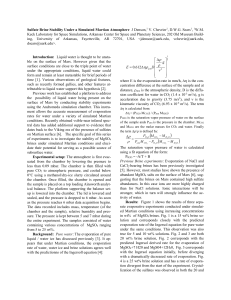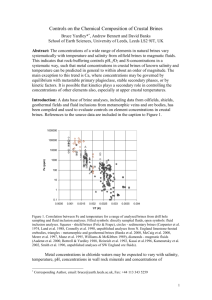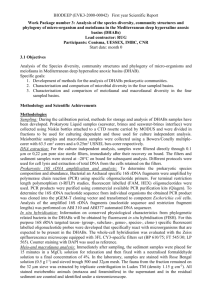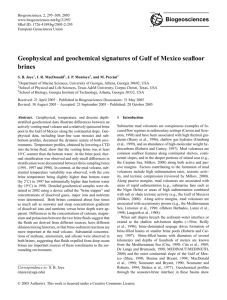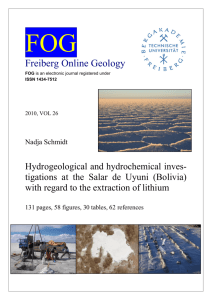HydroQuest Brine Dis..
advertisement
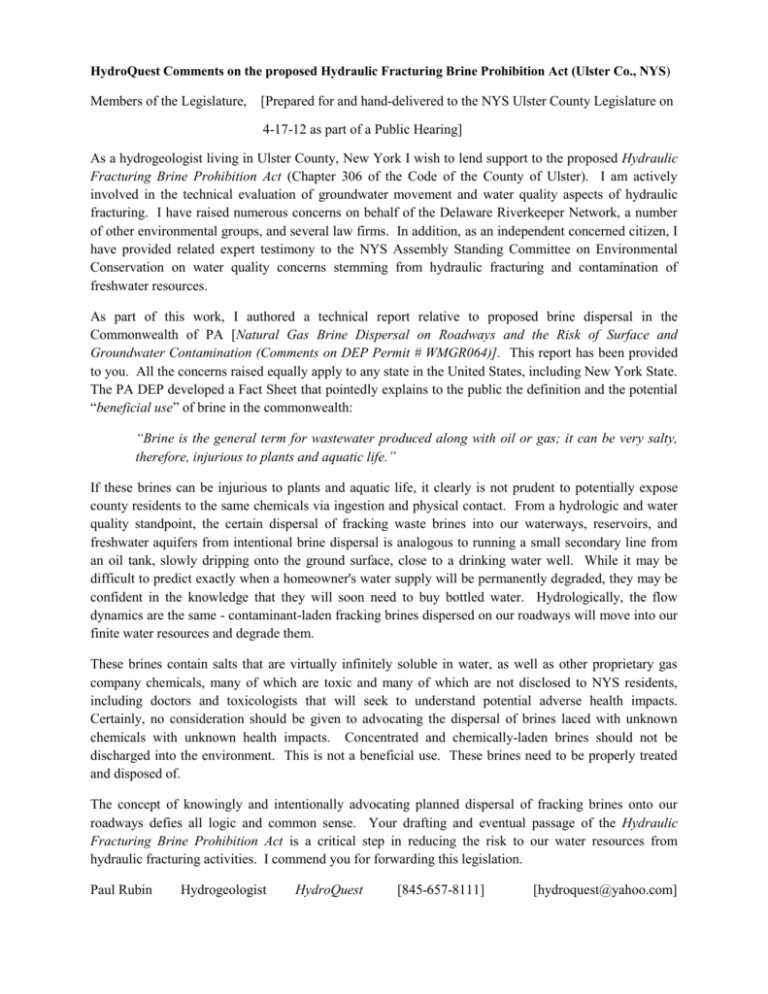
HydroQuest Comments on the proposed Hydraulic Fracturing Brine Prohibition Act (Ulster Co., NYS) Members of the Legislature, [Prepared for and hand-delivered to the NYS Ulster County Legislature on 4-17-12 as part of a Public Hearing] As a hydrogeologist living in Ulster County, New York I wish to lend support to the proposed Hydraulic Fracturing Brine Prohibition Act (Chapter 306 of the Code of the County of Ulster). I am actively involved in the technical evaluation of groundwater movement and water quality aspects of hydraulic fracturing. I have raised numerous concerns on behalf of the Delaware Riverkeeper Network, a number of other environmental groups, and several law firms. In addition, as an independent concerned citizen, I have provided related expert testimony to the NYS Assembly Standing Committee on Environmental Conservation on water quality concerns stemming from hydraulic fracturing and contamination of freshwater resources. As part of this work, I authored a technical report relative to proposed brine dispersal in the Commonwealth of PA [Natural Gas Brine Dispersal on Roadways and the Risk of Surface and Groundwater Contamination (Comments on DEP Permit # WMGR064)]. This report has been provided to you. All the concerns raised equally apply to any state in the United States, including New York State. The PA DEP developed a Fact Sheet that pointedly explains to the public the definition and the potential “beneficial use” of brine in the commonwealth: “Brine is the general term for wastewater produced along with oil or gas; it can be very salty, therefore, injurious to plants and aquatic life.” If these brines can be injurious to plants and aquatic life, it clearly is not prudent to potentially expose county residents to the same chemicals via ingestion and physical contact. From a hydrologic and water quality standpoint, the certain dispersal of fracking waste brines into our waterways, reservoirs, and freshwater aquifers from intentional brine dispersal is analogous to running a small secondary line from an oil tank, slowly dripping onto the ground surface, close to a drinking water well. While it may be difficult to predict exactly when a homeowner's water supply will be permanently degraded, they may be confident in the knowledge that they will soon need to buy bottled water. Hydrologically, the flow dynamics are the same - contaminant-laden fracking brines dispersed on our roadways will move into our finite water resources and degrade them. These brines contain salts that are virtually infinitely soluble in water, as well as other proprietary gas company chemicals, many of which are toxic and many of which are not disclosed to NYS residents, including doctors and toxicologists that will seek to understand potential adverse health impacts. Certainly, no consideration should be given to advocating the dispersal of brines laced with unknown chemicals with unknown health impacts. Concentrated and chemically-laden brines should not be discharged into the environment. This is not a beneficial use. These brines need to be properly treated and disposed of. The concept of knowingly and intentionally advocating planned dispersal of fracking brines onto our roadways defies all logic and common sense. Your drafting and eventual passage of the Hydraulic Fracturing Brine Prohibition Act is a critical step in reducing the risk to our water resources from hydraulic fracturing activities. I commend you for forwarding this legislation. Paul Rubin Hydrogeologist HydroQuest [845-657-8111] [hydroquest@yahoo.com]
